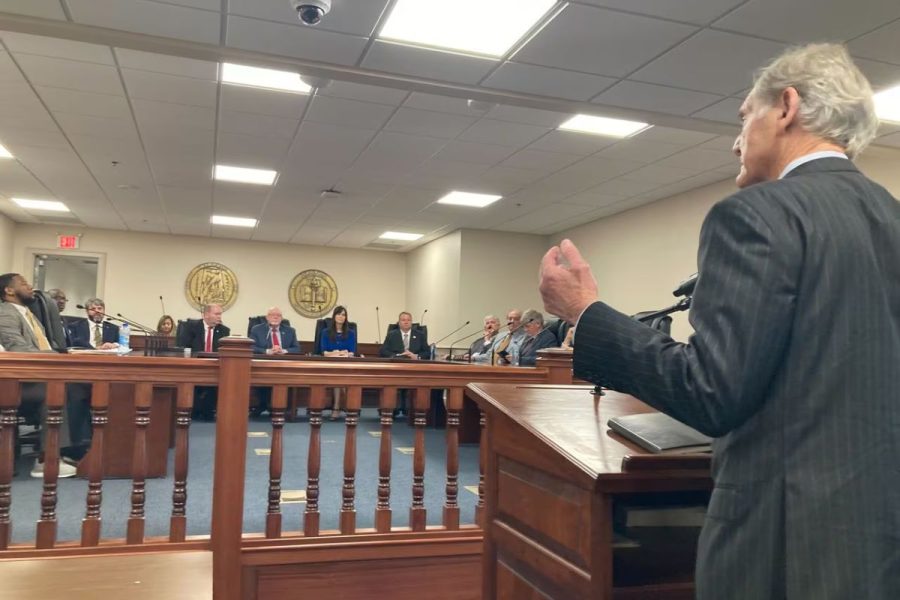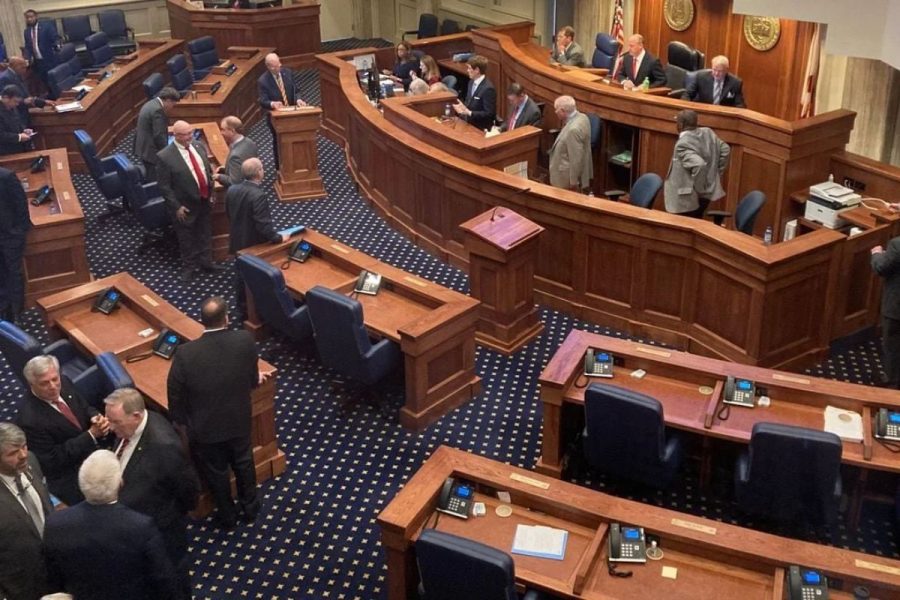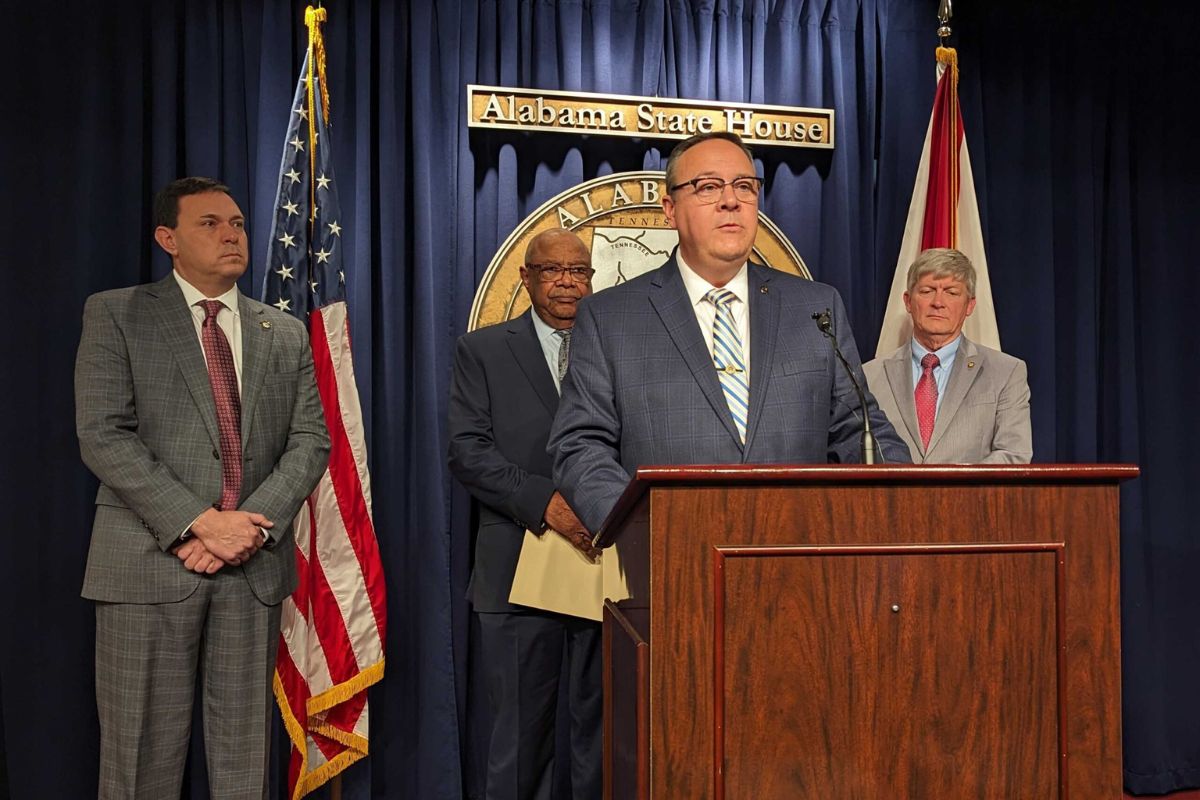Alabama Gambling Plan Altered: The recent modifications to Alabama’s gambling plan have sparked significant debate among lawmakers and citizens alike.
With casinos and betting now off the table, the focus has shifted towards the preservation and expansion of the state lottery.
This strategic shift in legislative priorities raises questions about the future landscape of gambling in Alabama and the potential implications for state revenue and economic development.
As discussions unfold and decisions are made, the intricate interplay between lawmakers, stakeholders, and public opinion will undoubtedly shape the final outcome of this contentious issue.
Alabama Senate Committee Approves Scaled-Back Gambling Legislation: Lottery Focus
The Alabama Senate Committee has approved a scaled-back gambling legislation with a primary focus on the lottery, omitting sports betting and full casino games. This decision marks a departure from the more expansive House-approved bill, which included provisions for sports betting and the establishment of up to seven new casinos. The revised legislation is strategically crafted to increase the likelihood of securing the necessary votes for passage.
By narrowing the scope of the gambling activities to the lottery, the Senate aims to streamline the legislative process and garner broader support from lawmakers. This targeted approach reflects a conscious effort to prioritize the implementation of a state lottery while setting aside more contentious issues such as sports betting and full-scale casinos. The shift in focus towards the lottery underscores a deliberate strategy to increase the bill’s chances of success within the legislative body.
The Senate’s decision to exclude sports betting and full casino games aligns with a more conservative approach to gambling expansion, emphasizing a gradual and cautious entry into new forms of gaming within the state of Alabama.

Legislative Changes Address Vote Timing and Scope of Gambling Activities
Legislative adjustments regarding the timing and scope of gambling activities have been implemented to address key concerns in Alabama’s gambling plan update.
- Special Election Date: The new plan proposes a special election on September 10 for voter decisions on the constitutional amendment, streamlining the process for a timely resolution.
- Creation of Gaming Commission: A gaming commission with an enforcement division is set to be established, with the aim of centralizing and regulating gambling activities across the state, ensuring consistency and oversight.
- Restrictions on Gambling Activities: Local constitutional amendments related to gambling will be repealed, with new restrictions in place that limit gambling to specific locations. Additionally, the exclusion of electronic bingo and casino games refines the scope of permissible gambling activities in Alabama.
These legislative changes reflect a strategic approach to addressing concerns around the timing of the vote and the regulation of gambling activities, setting a clear path forward for the state’s gambling plan.
Focus on Lottery, Taxation, and Negotiations with Poarch Band of Creek Indians
Emphasizing the economic aspects of the gambling plan update, attention is directed towards the establishment of a lottery, taxation framework, and negotiations with the Poarch Band of Creek Indians.
The proposed legislation focuses on the implementation of a state lottery and the imposition of taxes ranging from 24 to 32 percent on gambling activities. Electronic bingo and casino games are excluded from the plan, with an emphasis on pari-mutuel betting on horse and dog racing through simulcasts and historical racing machines.
Additionally, the governor is granted the authority to negotiate with the Poarch Band of Creek Indians, potentially permitting full-scale casino games on tribal lands. The generated funds are designated for the state General Fund, with a proposed allocation for education, the General Fund, and infrastructure post-March 30, 2029.
Notably, the exclusion of sports betting from the plan is attributed to concerns regarding its potential impact on the youth population.

ALSO READ: Alabama House Approves Bill Limiting DEI, Sparks Debate
Legislative Dynamics: Senate Approval, Potential Return to the House, and Compromise Possibilities
Upon receiving approval from the Senate Tourism Committee, the legislation is now poised for consideration by the full Senate, where a three-fifths majority vote is necessary for the constitutional amendment to progress. The following are key points in the legislative dynamics concerning the Alabama gambling plan:
- House Return: If the Senate approves the legislation, it will need to return to the House due to the alterations made. This step is crucial to ensure alignment between both chambers on the final version of the bill.
- Potential Conference Committee: There is a possibility of establishing a conference committee to address any disparities between the Senate and House versions of the legislation. This committee would aim to find common ground and reach a consensus on the proposed gambling framework.
- Compromise Possibilities: As the legislative process unfolds, there exists a potential for compromises to be made to garner support from lawmakers with varying perspectives. Finding middle ground may be essential in moving the bill forward and achieving the desired regulatory changes in Alabama’s gambling landscape.
News in Brief
Alabama Senate Committee approves a scaled-back gambling bill with a primary focus on the lottery, excluding sports betting and full casinos. The strategic shift aims to streamline the legislative process and secure broader support. Legislative changes include a special election on September 10 and the creation of a gaming commission for centralized oversight.
The plan emphasizes a state lottery, taxation, and negotiations with the Poarch Band of Creek Indians, excluding sports betting to address concerns about youth impact. The bill, requiring a three-fifths majority vote in the Senate, may return to the House for alignment, potentially involving a conference committee and compromise negotiations for regulatory changes in Alabama’s gambling landscape.

